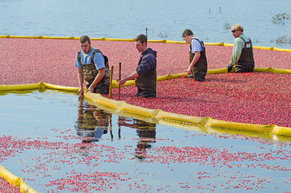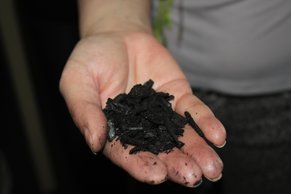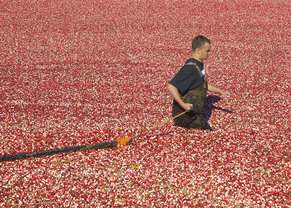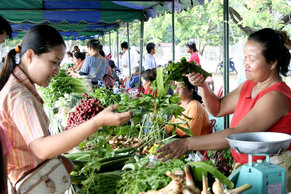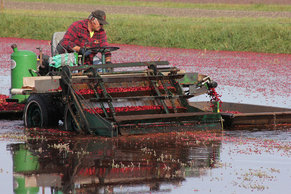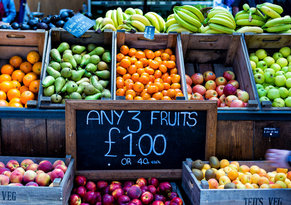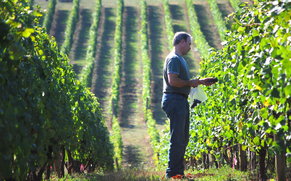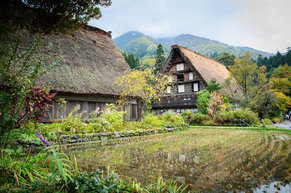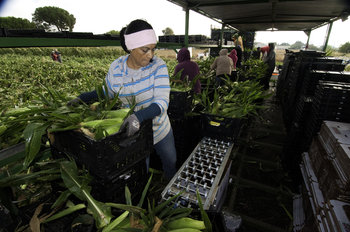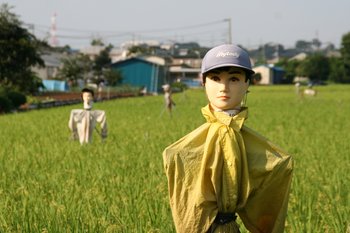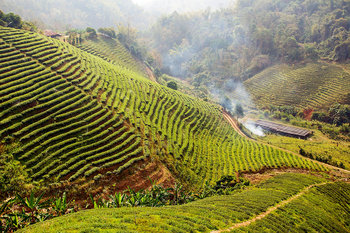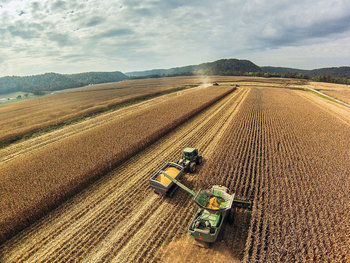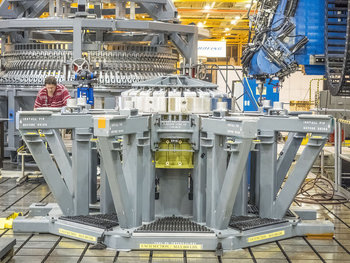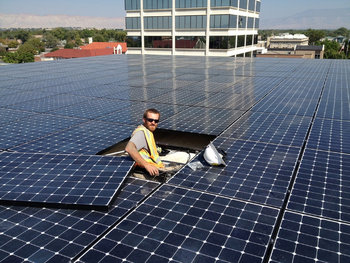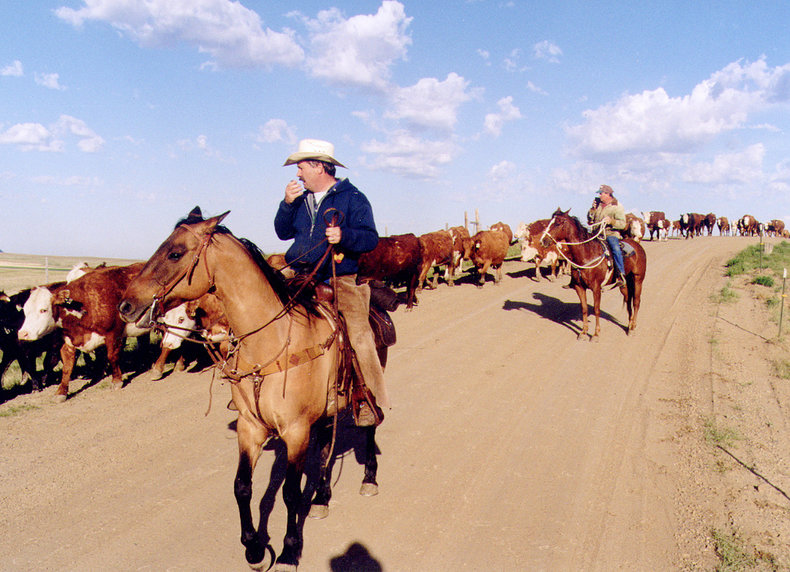
Traditional Agriculture
Agriculture based on traditional and cultural practices as opposed to the latest in technology. This is still practiced by large populations on a global basis.Terrace Farming
An ancient method of farming hills and mountains whereby a series of flat areas are built into a slope. When it rains, water and nutrients flow from one flat area to the next down the slope. Terrance farming requires extensive infrastructure that is typically built up over many generations.Slash & Burn
The creation of a fertile field by burning down forests and other vegetation. This is farmed for as short as one season before moving on to another location. This is widely practiced on a global basis but is not scalable or sustainable for large populations.Sharecropping
An arrangement where a landowner allows tenants to farm their land, usually in exchange for a share of the crop. This is a traditional system in many countries that is guided by law or custom.Intensive Farming
A category of business that seek to maximize the yield of land or water surfaces. This is often mechanized with heavy use of chemicals such as fertilizers, pesticides and growth hormones.Extensive Farming
The production of food on low quality land with few inputs such as labor and chemicals. This is low yield but may use large areas of land. This can have advantages in areas such as animal welfare. Extensive farming can also produce food at low cost on land that isn't very useful such as arid land or mountainous regions. For example, farms in Switzerland that raise pigs on relatively unusable steep rocky slopes where pigs thrive.Ranching
A type of livestock operation that involves moving livestock such as cows, elk or bison to different grazing lands. This has benefits for ecosystems such as grasslands that naturally had herds of large grazing animals. It also can have benefits for animal welfare. It is common for ranchers to graze their animals on public land with grazing leases.Free Range
A method of animal husbandry that allows animals to roam freely outdoors. This is valuable to consumers who may view such practices as more humane and healthy. Regulations differ greatly from country to country concerning what practices can be considered free range. There is also significant difference between operators such that there is a need for clear standards that match consumer expectations.Dryland Farming
The farming of arid land without irrigation. Common crops include wheat, corn, beans and sunflowers.Paddy Field
Farming semiaquatic plants such as rice and wasabi on flooded land.Orchards
The production of food such as fruits and nuts from trees.Animal Husbandry
Farmers that raise animals for meat and other products such as milk and eggs.Dairy
The production of food from the milk of mammals such as cattle, goats and sheep.Aquaculture
The farming of fish and other aquatic organisms such as crustaceans and aquatic plants in controlled conditions.Mariculture
Aquaculture that occurs in the open ocean, often as a large scale operation.Beekeeping
The operation of bee colonies to produce honey and pollinate crops.Hobby Farm
A small farm operated for pleasure or supplemental income.Urban Farming
Farms located in a city or suburban location. These may increase the resilience of an area by growing local food. For this reason, urban farming is often supported by local governments. For example, by providing tax breaks for green roofs or zoning certain areas as agricultural such that they can't be developed for other purposes. Most urban farming is currently at the hobby farm level. However, it is possible that advanced techniques such as vertical farming will allow for great scale of food production in cities.Carbon Farming
A farm that stores carbon in the soil using techniques such as biochar. This has potential to store carbon in a stable state for thousands of years. Giving farmers incentives to store carbon may be part of a solution to global warming. However, this needs to be carefully considered because it may have side effects such as increasing the cost of food or encouraging nonsensical behavior such as burning down forests to build carbon farms that store less carbon.Seed Companies
Seeds are the basis for all agriculture and are critical to the food security of a nation. Seeds are also important to the bioheritage of an ecosystem and have implications for science. Some seed companies seek to preserve the bioheritage and culture of seeds in a region while others seek to standardize and control seeds on a global basis as a form of intellectual property.Plant Nursery
A business that grows plants to a limited age. These plants are then sold to farmers, forestry operations and consumers for planting. Nurseries typically provide a highly protected environment for young plants that is free of stresses such as pests.Monocropping
The practice of growing a single crop year after year on the same land. This occurs across vast agricultural regions and can represent a threat to food security as a more diverse crop is more resilient to risk in areas such as climate and weather. On the positive side, monocropping allows for significant economies of scale and may tend to reduce the cost of food. Monocropping can result from subsidies that give incentives for everyone to farm the same commodity.Intercropping
Intercropping is the process of growing multiple crops in close proximity. This may produce a greater yield by making greater use of the resources available on a plot of land. For example, planting a tall crop that requires direct sunlight with a short crop that requires shade. Intercropping can be labor intensive but advances in technology such as robotics are likely to make it more scalable in the near term.Organic Farming
Farms that produce crops and livestock without using methods that are negative perceived by consumers such as pesticides, chemical fertilizers, genetically modified organisms, antibiotics and growth hormones. This tends to raise the value of products. As such, regulations and standards are used to certify which products can claim to be organic.Sustainable Agriculture
Sustainable agriculture is any farming practice that does no harm to people or planet that can be sustained indefinitely. This requires practices that nurture the soil, preserve water and produce diverse crops. Such methods typically minimize or eliminate the use of chemicals.Artisanal Crops
The production of food products that are unique to a region, terroir or farm. This produces high value products that may defy commodity pricing.Appellation
An appellation is a type of legal protection for the artisanal products of a region. This can greatly increase prices and gives incentives for a region to maintain high standards of quality. This benefits consumers as a mark to distinguish between high quality and commodity products.Farmers Markets
Markets that allow farmers to sell food products directly to the public.Agritourism
Farms that offers entertaining activities to visitors as a source of revenue. For example, an orchard that allows visitors to pick their own fruit.Summary
The following are common examples of the agriculture industry.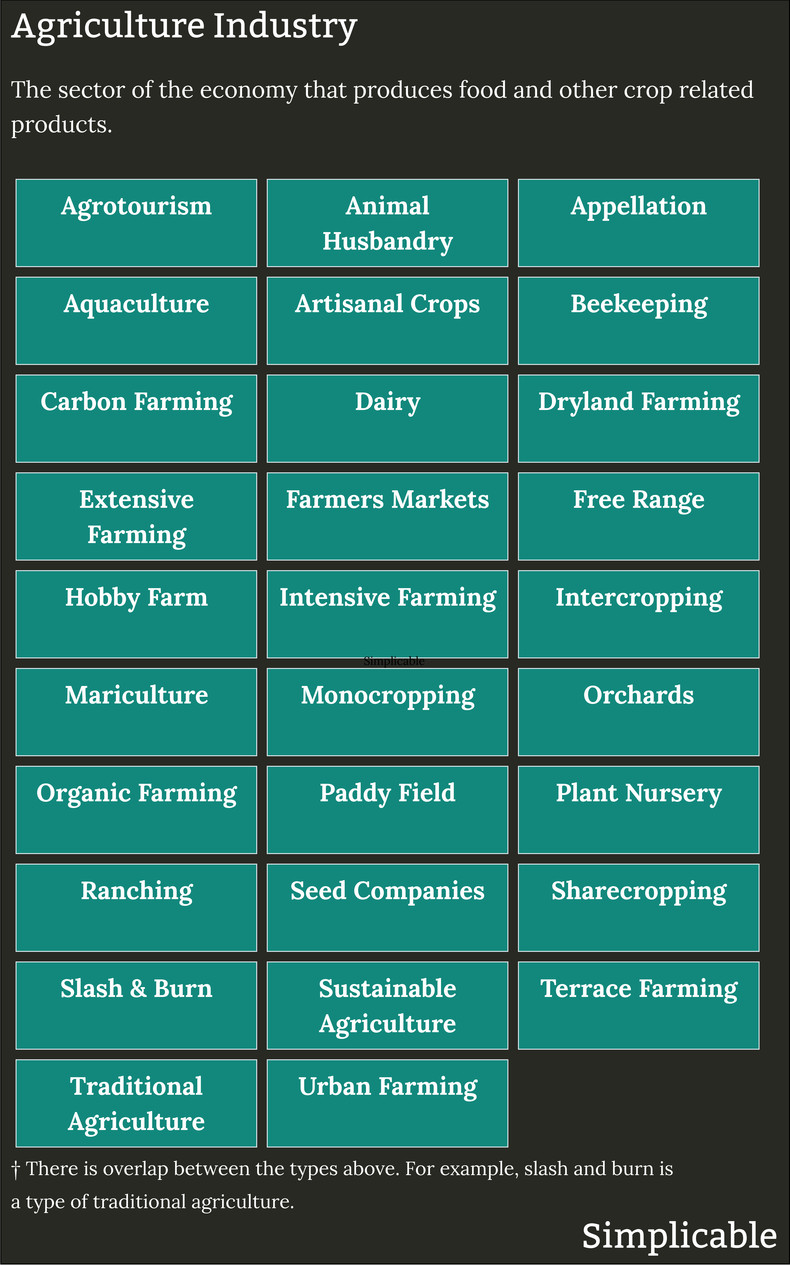
Overview
The agriculture industry includes the entire agriculture value chain that produces food and other agricultural products.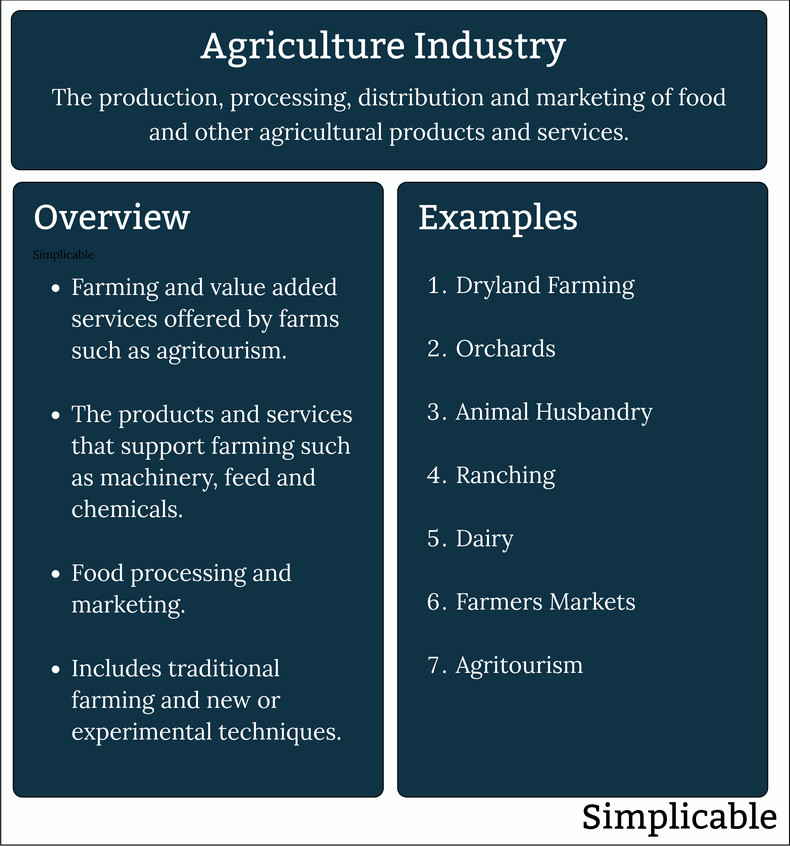
Notes
The agriculture industry has a significant impact on the environment. Agriculture uses a great deal of resources including land and water and produces much pollution. As such, there is an opportunity for farming practices to be improved to have a positive impact on people and planet.In the broadest sense, the list above could be expanded to include industries that support the agricultural industry such as agrochemical, farm machinery, biotechnology and food processing industries.| Definition: Agriculture Industry | ||
Type | ||
Definition | The sector of the economy that produces livestock, poultry, fish and crops. | |
Related Concepts | ||

